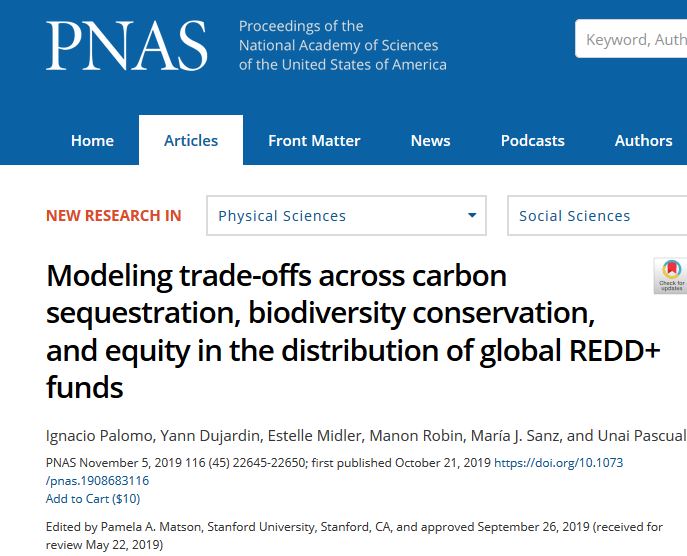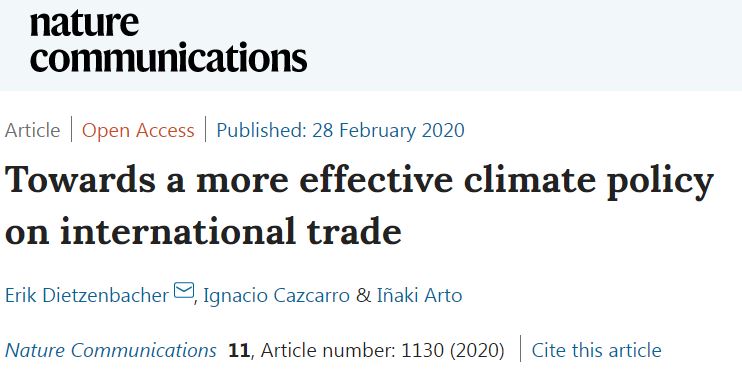September 19, 2019
Published by BC3Research Iñaki Arto Ignacio Cazcarro Anil Markandya at September 19, 2019
Categories
Environmental change constitutes a risk to the sustainability of economic activities, within deltas and the wider regions and economies within which they sit. Slow acting environmental change and shocks from extreme events can affect economic activities. Using multiregional input-output tables, extended to include environmental dimensions and combined with Computable General Equilibrium models, flows of economic activities and ecosystem services across supply chains are assessed.
Do you like it?
October 22, 2019
Published by BC3Research Maria Jose Sanz at October 22, 2019
Categories
The Paris Agreement introduced an ambitious goal of limiting warming to 1.5 °C above pre-industrial levels. Here we combine a review of modelled pathways and literature on mitigation strategies, and develop a land-sector roadmap of priority measures and regions that can help to achieve the 1.5 °C temperature goal. Transforming the land sector and deploying measures in agriculture, forestry, wetlands and bioenergy could feasibly and sustainably contribute about 30%, or 15 billion tonnes of carbon dioxide equivalent (GtCO2e) per year, of the global mitigation needed in 2050 to deliver on the 1.5 °C target, but it will require substantially more effort than the 2 °C target
Do you like it?
November 11, 2019
Published by BC3Research Ignacio Palomo Maria Jose Sanz Unai Pascual at November 11, 2019
Categories
The program on Reducing Emissions from Deforestation and Forest Degradation (REDD+) is one of the major attempts to tackle climate change mitigation in developing countries. REDD+ seeks to provide result-based incentives to promote emission reductions and increase carbon sinks in forest land while promoting other cobenefits, such as the conservation of biodiversity.
Do you like it?
March 2, 2020
Published by BC3Research Iñaki Arto at March 2, 2020
Categories
The attribution of the responsibility for the emissions for CO2 between producers and consumers is a controversial issue in NEW BC3 publication in Nature Communications journal “Towards a more effective climate policy on international trade” climate change policy and research. Two main accounting methods are used in the literature to determine countries’ contribution to global emissions. The production-based accounting (PBA) measures the amount of CO2 released to the atmosphere by the industries and households of a country. The consumption-based accounting (CBA) attributes emissions to the country’s consumption of final products. CBA redistributes the emissions from PBA and considers that emissions in another country are necessary for the home country’s consumption. These two accounting frameworks are used to assign responsibility for current CO2 emissions. Producer responsibility addresses the countries that directly generate the emissions. Consumer responsibility addresses the countries that ultimately drive the pressure.
Do you like it?




